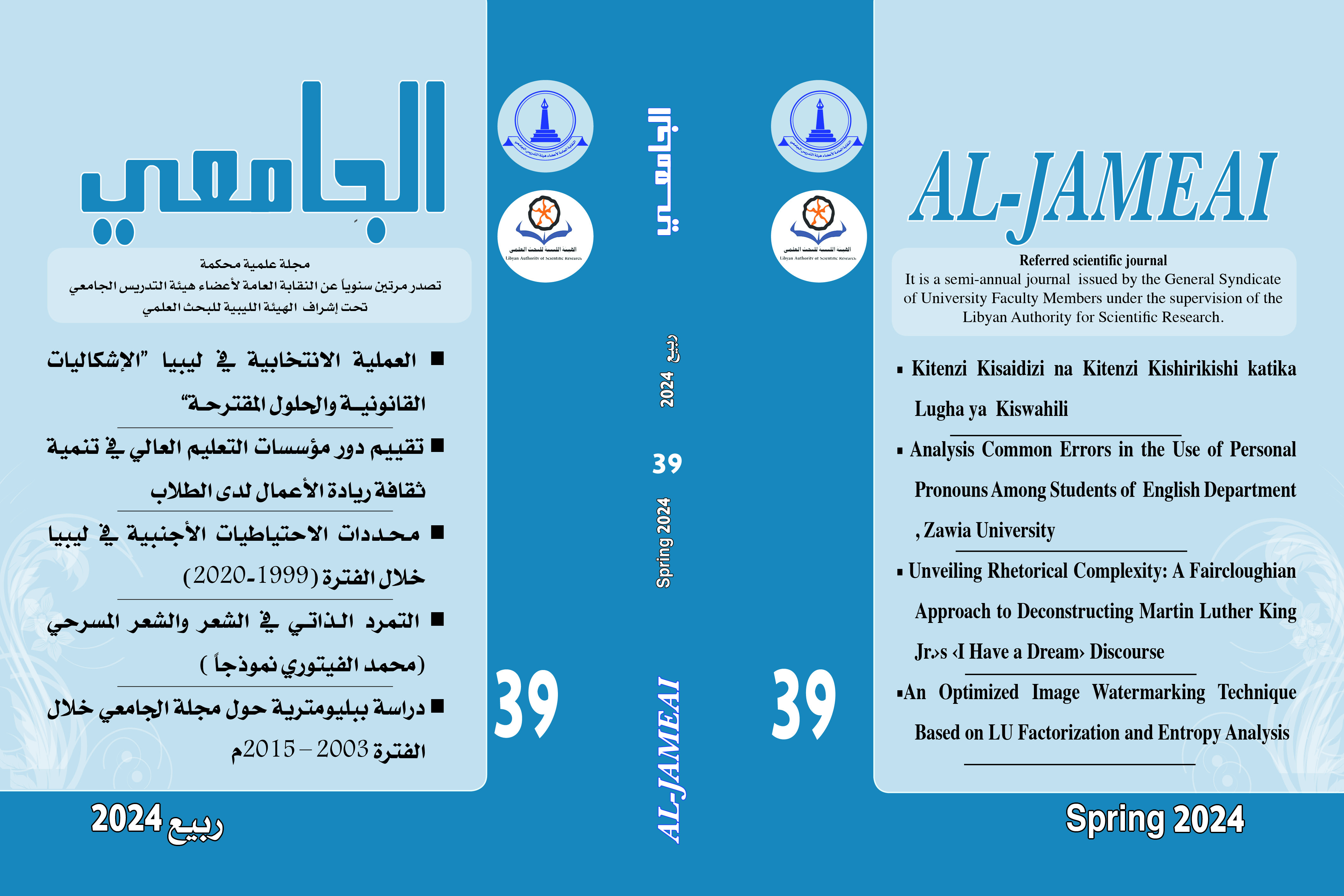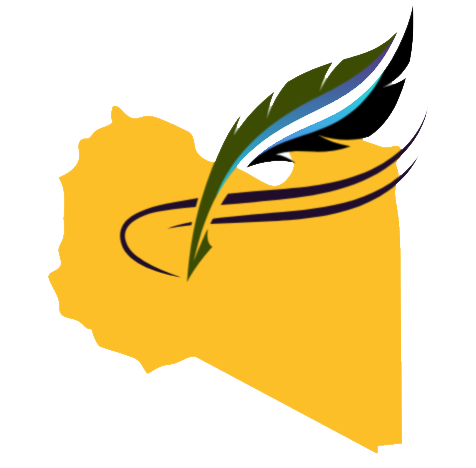التمرد الذاتي في الشعر والشعر المسرحي
(محمد الفيتوري نموذجاً )
الملخص
المستخلص:
يتناول هذا البحث التمرد وارتباطه بالشعر والشعر المسرحي ،لأن كلاهما يتعامل مع الذات كتابة وصورة ،ونظراً لأن الكاتب يخضع في تأليف نصه لمشاعر ذاتية، قد تكون نتاج تجربة ذاتية شخصية أو تجارب للآخرين، تتخذ طابعاً تأثيرياً خاصا منها النفسي ومنها الاجتماعي ومنها غير ذلك ،فهذه الحالات تتطلب عقلية إبداعية من نوع خاص ،وهذا ما لاحظه الباحث في شعر محمد الفيتوري ليكون نموذجاً لمعنى التمرد والنقد الذاتي ،الذي يعد رفضاً وثورة لإيجاد البديل متخذاً من المصارحة وتبيان الحقيقة هدفاً أعلى لتلقي إبداعه ،لذلك حددت مشكلة البحث في ماهية طبيعة التمرد في الشعر والشعر المسرحي ،وقد توصل الباحث من خلال هذا البحث إلى أن البيئة الاجتماعية والاقتصادية والسياسية هي أساس البناء الفكري للكاتب والمؤثرة في إبداعه .
Abstract:
This research deals with rebellion and its connection to poetry and theater poetry, because both of them deal with the self in writing and image, and because the writer is subject to subjective feelings in composing his text, which may be the result of personal self-experience or experiences of others, taking a special impact character, including psychological, social, or otherwise, these cases require a creative mind of a special kind, and this is what the researcher noticed in the poetry of Mohammed Fitori to be a model for the meaning of rebellion and self-criticism, which is a rejection and revolution to find an alternative, taking frankness and truth-telling as a higher goal to receive his creativity, so the research issue was determined in what is the nature of rebellion in poetry and theater poetry, and the researcher concluded through this research that the social, economic and political environment is the basis of the writer's intellectual construction and influences his creativity.
التنزيلات









